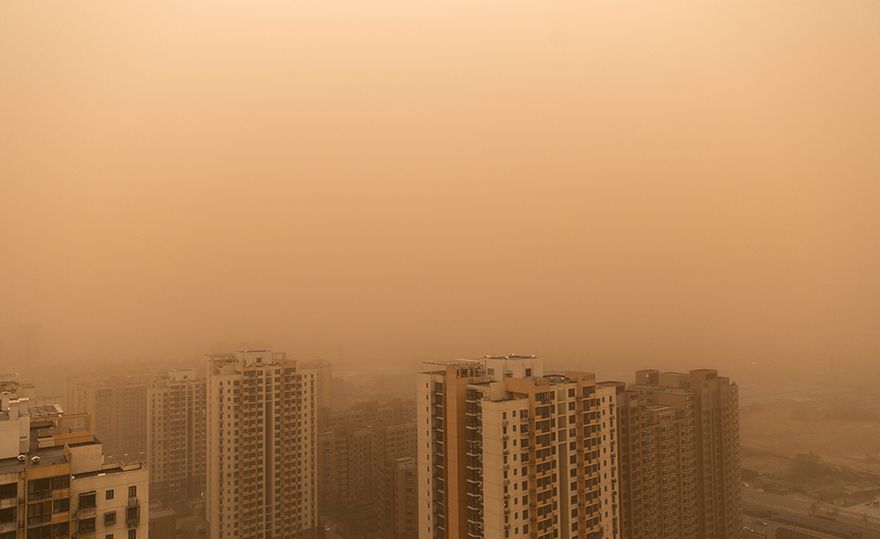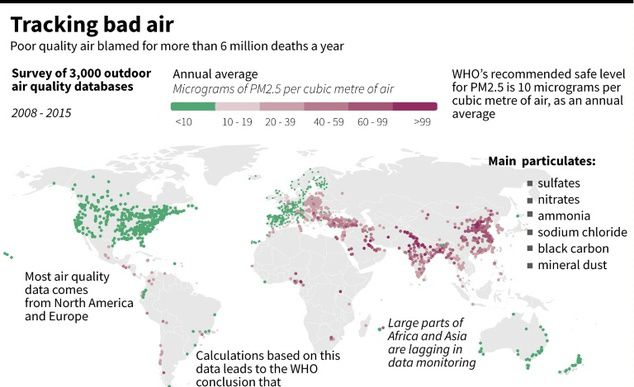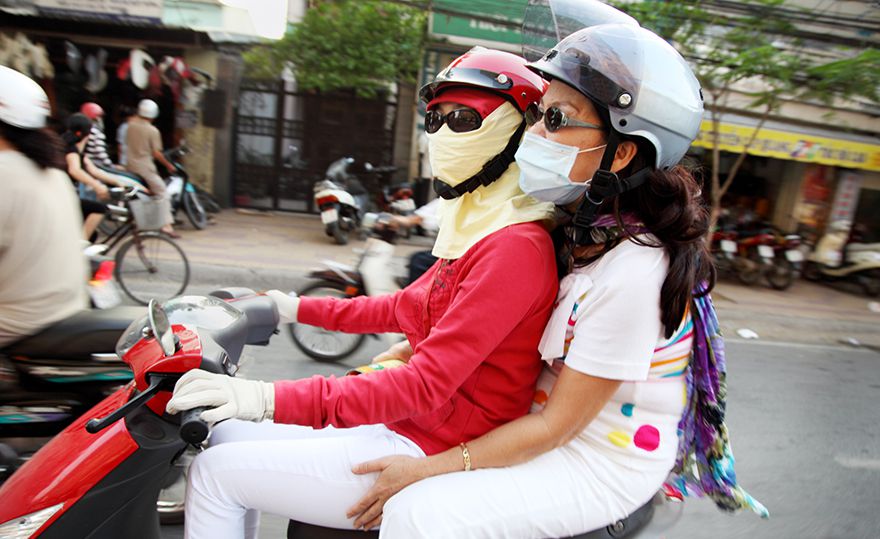世界卫生组织:全球92%人口呼吸着污染空气
|
Nine out of ten people globally are breathing poor quality air, the World Health Organization (WHO) said yesterday. 世界卫生组织昨天表示,每十个人就有九个呼吸着不良空气。 In a staggering report, calling for dramatic action against pollution that is blamed for killing more than 16,000 Brits and six million people worldwide, every year. 这个令人震惊的报告也呼吁大家采取行动,控制空气污染。据说一年内已有600万人死于空气污染。 New data in a report from the UN's global health body 'is enough to make all of us extremely concerned,' Maria Neira, the head of the WHO's department of public health and environment, told reporters. 据《法新社》报道,世卫组织公共卫生、环境和健康社会决定因素司司长内拉受访时表示,联合国全球卫生组织的数据显示,空气污染指数已足够让人非常担忧。 WHO released an interactive map showing the pollutants known as PM2.5 for all countries. 世界卫生组织还公布了一个动态世界地图来展示PM2.5对于世界各国的污染。
The problem is most acute in cities, the report found, but air in rural areas is worse than many think, WHO experts said. 世卫组织专家表示,城市中的空气污染问题最严重,但是乡下的空气素质比多数人想象中还糟。 Poorer countries have much dirtier air than the developed world, according to the report, but pollution 'affects practically all countries in the world and all parts of society', Mrs Neira said in a statement. 内拉在声明中指出,报告显示较贫穷国家的空气会比已发展国家来得肮脏,但空气污染的问题是会影响全球每一个国家和社会。 'It is a public health emergency,' she said. 'Fast action to tackle air pollution can't come soon enough,' she added, urging governments to cut the number of vehicles on the road, improve waste management and promote clean cooking fuel. 她说:“这是个公共卫生紧急事件,应付空气污染问题刻不容缓。”同时,她也吁请政府减少路上的车辆、改善废物管理,以及提倡使用清洁能源。 Tuesday's report was based on data collected from more than 3,000 sites across the globe. It found that '92 per cent of the world's population lives in places where air quality levels exceed WHO limits'. 这份报告是根据全球超过3000个地方的数据所拟定的。调查显示,全球92%的人口居住在空气污染指数超标的地方。
Nearly 90 per cent of air pollution-related deaths occur in low and middle-income countries, the WHO said. Southeast Asia and the Western Pacific region, including China, Malaysia and Vietnam, are the hardest hit, the data showed. 世界卫生组织表示,近90%与环境污染有关的死亡案例发生在低收入或中等收入国家,而在东南亚和西太平洋地区,中国、马来西亚和越南的情况较为严重。 Carlos Dora, coordinator at the WHO's public health and environment department, said that some of the strategies adopted to safeguard against polluted air have limited effectiveness. For example, daily air quality warnings -- like those sometimes issued in Beijing -- likely do little to help the average person, since the real threat is exposure to sub-par air over extended periods. 世卫组织公共卫生及健康问题的环境和社会决定因素司处长Carlos Dora表示,有的控制空气污染的措施效果有限。例如,每日的空气素质警告对个人的帮助不大,因为真正的威胁是长期不达标的空气。 Staying indoors on a day when the air is particularly bad accomplishes little, Dora said. Additionally, the WHO has seen no conclusive evidence that face masks do much to filter dirty air, Dora added. 她也说:“在空气素质差的那一天待在室内的效果不大。另外,世界卫生组织也没有看到足够证据证明口罩有助于过滤肮脏的空气。” |











